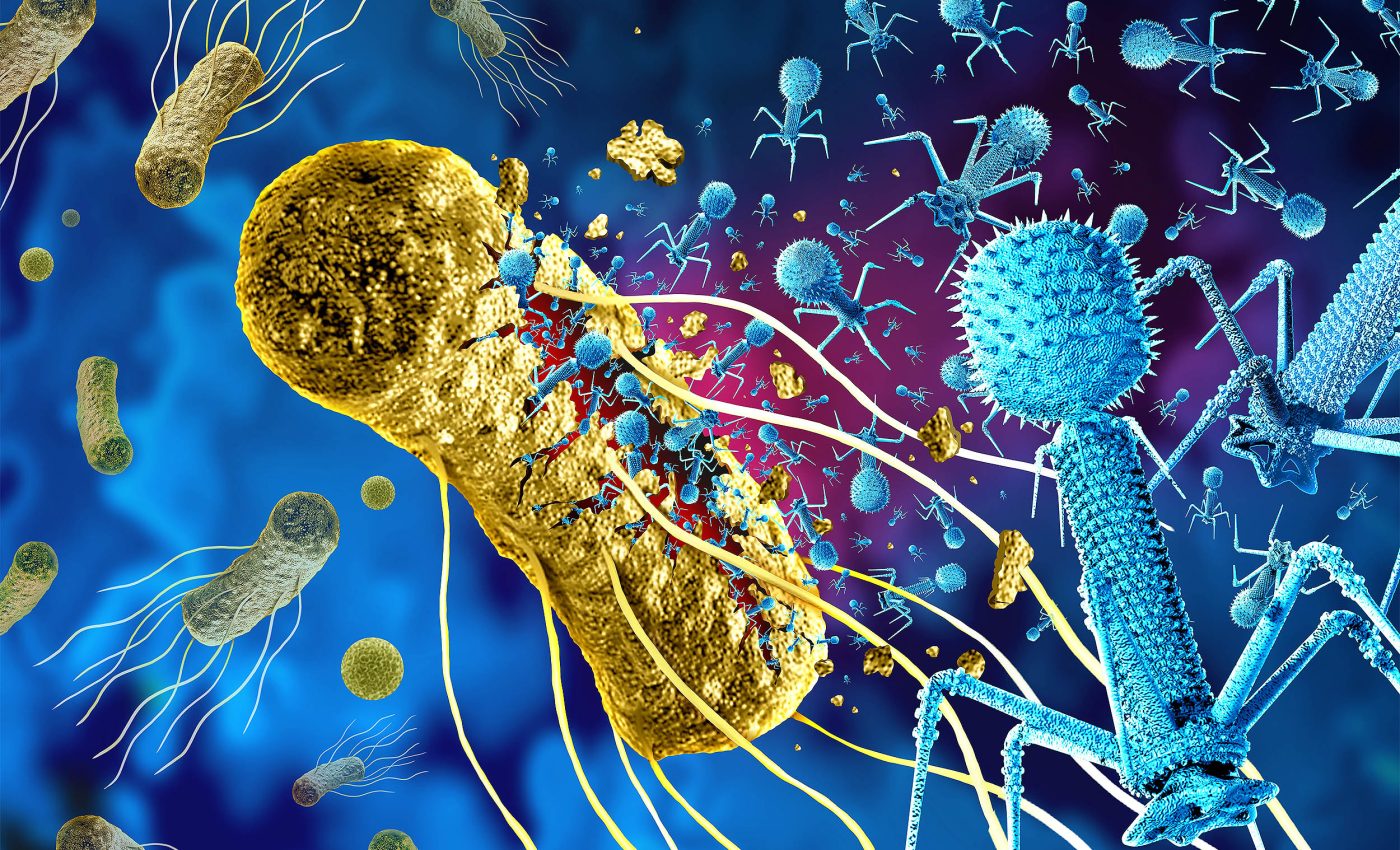
Phagosome: A crucial and overlooked player in our microbiome
You’ve likely heard of the microbiome, the army of bacteria that live within us and play a critical role in our health. One of its key components is a forgotten cousin, the phagosome.
It’s hard to imagine, but our bellies are teeming with billions of tiny creatures every second, every day. Some are good, some bad, but all serve a purpose in our bodies’ complex orchestra of functions.
The scientist at the forefront of this microscopic research is Breck Duerkop, a bacteriologist at the University of Colorado Anschutz School of Medicine.
With fellow researchers, he is delving deep into the world of phages also known as bacteriophages. These are viruses that live within and around bacteria inside us, a world teeming with trillions of them, bustling with more activity than a bustling city square.
The phage boom
Researchers, including the infectious disease physician and researcher Paul Bollyky from Stanford Medicine, believe that if we could harness or target the right phages, we might be able to improve human health significantly.
“There will turn out to be good and bad phages,” says Paul Bollyky. The quest to understand phages is akin to trying to decode a treasure map, with the treasure itself yet unknown.
Dark matter of the phagosome
Phages are elusive and astoundingly diverse. A large chunk of current research is focused on identifying these viruses and their host bacteria.
The Gut Phage Database already lists more than 140,000 phages. “Their variety is just extraordinary,” admits Colin Hill, a microbiologist at University College Cork in Ireland. This has led scientists to call them the “dark matter” of the phagosome.
To find phages, scientists sift through genetic sequences from human fecal samples. Here they discovered crAssphage, the most common gut phage group.
The ‘cr’ in crAssphage stands for “cross-assembly,” referring to a technique used to identify their genes, and has nothing to do with being crude or uncouth. Trust scientists to come up with fascinating names!
Phages, bacteria, and us
While we might think of viruses as harmful to health, the relationship between phages and bacteria is more symbiotic than antagonistic.
“We used to think that phage and bacteria are fighting but now we know that they’re actually dancing; they’re partners,” explains Hill.
By transferring genes, phages can actually benefit bacteria, helping them adapt to new surroundings or even develop resistance to antibiotics.
This brings us to the question: Do phages affect our health? The answer is yes, and how! A healthy phagosome implies a diverse phage population that keeps the bacterial growth in check.
Remember the wolf and deer analogy? The phages are the wolves that keep the bacterial deer population from running amok.
When this balance is disturbed, diseases like inflammatory bowel syndrome (IBS), irritable bowel disease, and colorectal cancer can occur.
Looking ahead: Phagosome and gut health
So, how can we apply this understanding in the field of medicine? Hill suggests that targeting phages might provide a more precise strategy than attempting to modify the entire gut microbiome.
For example, researchers are actively searching for specific phages that could selectively infect and eliminate bacteria responsible for causing ulcers, potentially leading to more effective treatments and improved patient outcomes.
This targeted approach could revolutionize how we treat bacterial infections and restore health.
Study significance
It’s an exciting and exploratory time in the world of phages. As we take this peek into our gut’s micro world, one thing is clear: these trillions of tiny phages are crucial to managing our gut’s ecosystem. The phagosome, indeed, is a key dance partner for not just bacteria, but humans too.
So next time you sit down to a hearty meal, remember the invisible guests you’re feeding too, and be thankful for the work they’re doing to keep you healthy. Without them, you could be subject to all sorts of unpleasant symptoms like bloating and gas.
Yes, the phagosome might be the microbiome’s forgotten cousin, but it’s time we remembered and recognized it for the critical role it plays in our health.
The study is published in the journal Frontiers in Environmental Archaeology.
—–
Like what you read? Subscribe to our newsletter for engaging articles, exclusive content, and the latest updates.
Check us out on EarthSnap, a free app brought to you by Eric Ralls and Earth.com.
—–













